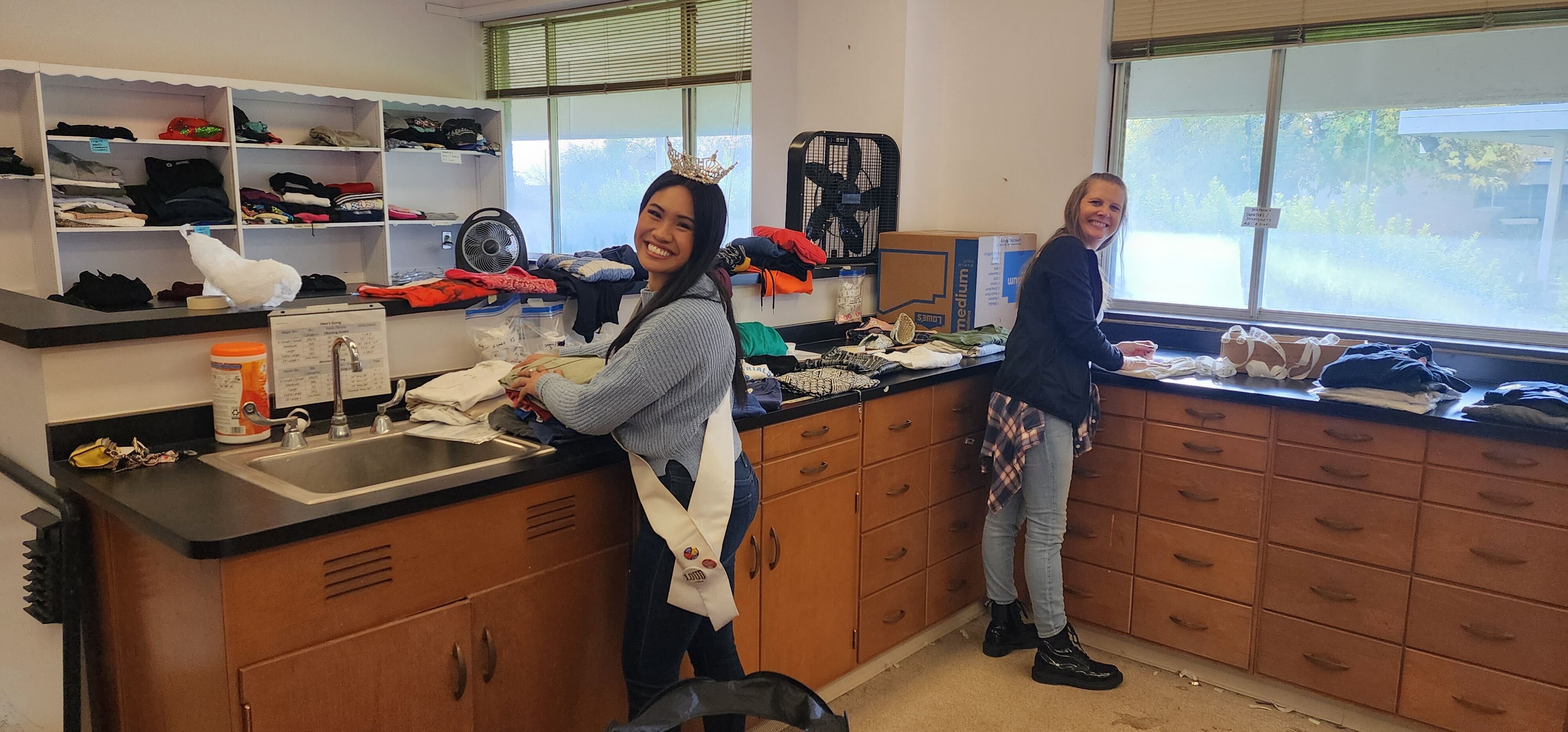

Project Humanities is an Arizona State University initiative founded in 2011 by Dr. Neal Lester, ASU faculty professor, with the hope of connecting students and faculty with diverse communities for engaged conversations. Now, 13 years after its conception, Project Humanities has served more than 18,220 people experiencing homelessness and partnered with approximately 5,375 service volunteers through its Homeless Outreach Program.
Lester commented on his inspirations for the initiative and the goals he set out to achieve in introducing a humanity-forward program to ASU students.
“I wanted to bring people into critical conversations, no matter what their discipline might be,” Lester said. “The approach I had then and have continued is asking how we bring together individuals and communities to talk, listen and connect. We range from political topics to cultural topics, asking how we have conversations with people that don’t necessarily look like you, think like you or live in the same zip code.”
At the center of Project Humanities is their Humanity 101 Pledge that any ASU student can sign. According to the Project Humanities website, “Humanity 101 addresses how ‘’human progress’ impacts equality, equity, and social justice in America.”
A panelist at one of the Project Humanities conferences thought it would be constructive to have something people could do to support the energy of the initiative. This became the Humanity 101 Pledge, defined by a variety of principles that range depending on culture and center on humanity.
“Much of what was floating around in the rhetoric about humanities regarded crisis,” Lester said. “We thought, we don’t want to start with crisis as the language, but rather with the question of are we losing our humanity. That became the center of our program.”
In the past 13 years, Project Humanities’ Homeless Outreach initiative has grown and adapted, especially during the COVID-19 pandemic. The needs of people without housing increased greatly during the pandemic, and, in response, Project Humanities on average served 180 to 200 people every other weekend.
Project Humanities collects rolling donations for people experiencing homelessness, including adult clothing, toiletries, shoes and accessories. According to Dr. Lester, there is also a persistent need for backpacks and bags. If you have any of these items to donate, there are three drop-off locations:
The Homeless Outreach Program primarily manifests in two events: Sorting Fridays and Service Saturdays. Sorting Fridays take place from 2 p.m. to 4 p.m. every Friday at 200 E. Curry Rd., Tempe, AZ 85281. Service Saturdays happen twice a month (every other Saturday) from 7:15 a.m. to 9:30 a.m. at 1206 W. Madison St, Phoenix, AZ 85007. For more information about event locations and parking, check the Project Humanities website here.
At Sorting Fridays, volunteers organize and label donations in preparation for Service Saturdays. The donations are later taken to the volunteer site in Phoenix via truck, and any leftover items are brought back to the ASU Community Services Building for later events. No advanced sign-up is required for individuals wanting to volunteer.
Service Saturdays give ASU students and other volunteers the opportunity to directly interact with the diverse communities, promoting interactions through “talking, listening and connecting,” as stated in the Project Humanities mission statement. Volunteers set up a pop-up shop in Phoenix and act as personal shoppers for people experiencing homelessness.
“We want people to have the dignity of choosing what they want, rather than being handed a bag of things they don’t want,” Lester said. “I think that is what is lost in so many interactions with people who are unsheltered: they somehow lose the dignity of choice.”
Not only do these events give support and kindness to those experiencing homelessness, but they also provide students with the opportunity to interact with diverse communities outside of their own.
Aria Robinson, a recent ASU graduate who studied anthropology and minored in dance, was first introduced to Project Humanities when she took an African American studies course taught by Dr. Lester. He encouraged his students to get involved with the initiative, and Robinson did just that.
“I decided to go out and visit an event outside of their Homeless Outreach,” Robinson said. “I then decided to follow up and join the Homeless Outreach Program, which was very inviting. One of the most impactful things is being overwhelmed with the wealth of kindness in the space. There are a lot of opportunities when you are standing and folding clothes to get to meet your neighbors and people from different communities, and that’s really special.”
Because Homeless Outreach service days are not limited to ASU students, a variety of people come together and participate. Megan Todd, a performance studies scholar and assistant teaching professor for the ASU School of Applied Sciences and Arts, has attended Homeless Outreach service days with both her son and father since 2021.
“I first learned of Project Humanities about 10 years ago,” Todd said. “I've attended events for years, as well as brought students to events, especially when they were online or hybrid. When my son was in 8th grade and needed to find a place to volunteer to meet his school's service requirement, I suggested he and my dad check out Sorting Fridays and Service Saturdays, and they have been consistent volunteers since.”
For interested ASU students, there are plenty of opportunities to engage with Project Humanities outside of their volunteer work. The initiative has a wide range of internship opportunities and is frequently looking to involve ASU students across different educational and social disciplines.
“[Interns] get to learn more about how nonprofit organizations work, and they get mentored,” Lester said about Project Humanities internship opportunities. “You tell us what your expertise is and how you want to participate, and we will find a place for you. We love having a range of student perspectives.”
If you are interested in getting involved with Project Humanities, visit their website and learn more about upcoming events and service opportunities.

